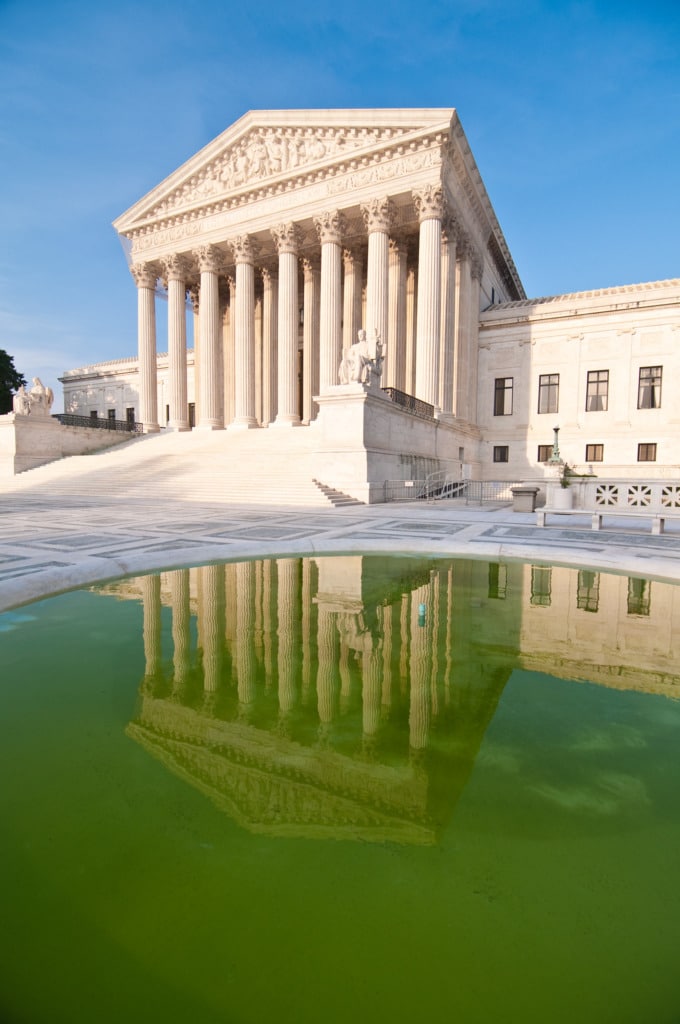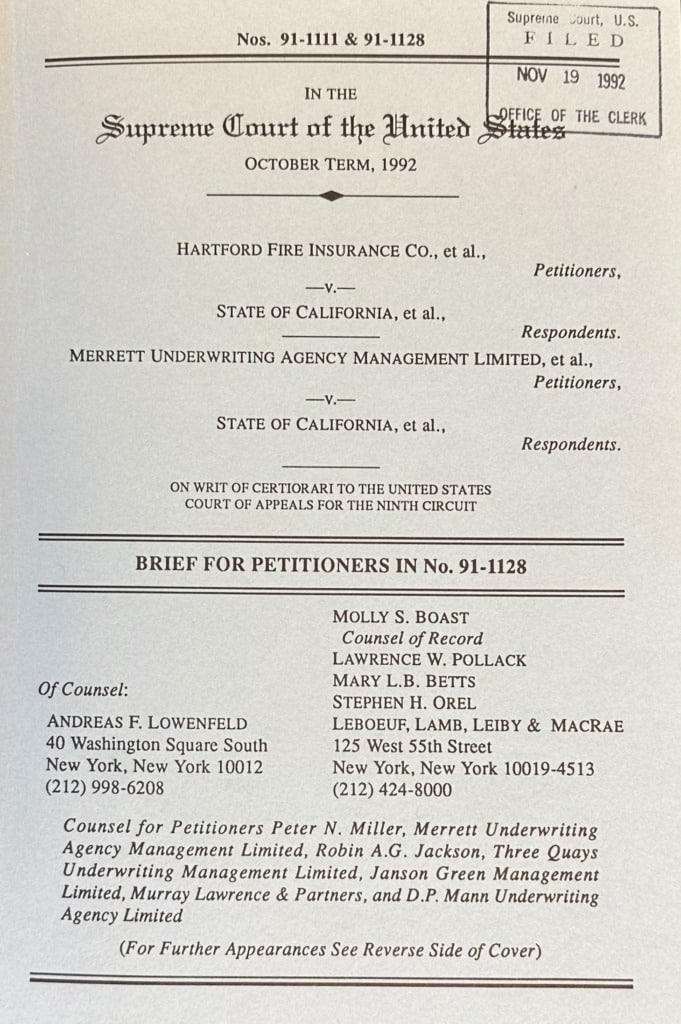Abitron Eliminates Circuit Tests but Causes More Confusion
During the oral argument in Abitron Austria GMBH v. Hetronic International, Inc., Justices Alito, Sotomayor, Gorsuch, and Barrett all expressed concern over whether the Court should overrule its 1952 decision in Steele v. Bulova Watch Co (1952). A reader of the Court’s majority decision by Justice Alito might be surprised to see that the majority…
Continue ReadingTwo New Supreme Court Decisions on the Presumption Against Extraterritoriality
The end of the Supreme Court’s term brought two decisions on the presumption against extraterritoriality, a significant and contested interpretive canon for federal statutes. Yegiazaryan v. Smagin ruled 6-3 that a civil RICO suit based on an alleged scheme to fraudulently conceal assets belonging to a U.S. judgment debtor had sufficient domestic content to fit…
Continue ReadingWhat is a “Domestic Application” of the Lanham Act? The Supreme Court Creates More Questions than It Answers
In Abitron Austria Gmbh v. Hetronic International, Inc., the Supreme Court appears to have returned to its recent preference for bright-line rules in cases assessing the extraterritoriality of federal statutes, but the brightness of this rule will dim as other fact patterns are considered.
Continue ReadingSupreme Court Holds that Trademark Statute Applies Only to Domestic Conduct
Last week, in Abitron Austria GmbH v. Hetronic International, Inc., the Supreme Court held that the federal trademark statute—known as the Lanham Act—applies only to domestic conduct infringing U.S. trademarks. The case involved foreign companies that put U.S.-protected trademarks on products that they made in Europe, most of which were sold to customers abroad, but…
Continue ReadingSupreme Court Holds Lanham Act Does Not Apply Extraterritorially
In Abitron Austria v. Hectronic International, the Supreme Court held that the federal trademark statute does not apply extraterritoriality, with the majority emphasizing that conduct relevant to the statute’s focus must occur within the United States.
Continue ReadingSmagin‘s Surprises
Last week’s decision in Yegiazaryan v. Smagin was surprising in a number of respects, from the line-up of the Justices to the possible shift it signals in the presumption against extraterritoriality.
Continue ReadingSupreme Court Approves Using Civil RICO to Help Enforce Arbitral Awards
Last week, the Supreme Court held in Yegiazaryan v. Smagin that civil RICO can be used to help enforce foreign arbitral awards. Specifically, the Court held that concealing assets to avoid paying a U.S. judgment that confirmed a foreign arbitral award could satisfy civil RICO’s “domestic injury” requirement, allowing the award-creditor to pursue a claim…
Continue ReadingSupreme Court decides Yegiazaryan v. Smagin
The Supreme Court just released its opinion in Yegiazaryan v. Smagin. For prior coverage on TLB by Bill Dodge see here, here, here, and here. The issue in the case was whether the plaintiff adequately plead a domestic injury under RICO. The foreign plaintiff alleged that the defendants worked together illegally to frustrate his collection…
Continue ReadingThrowback Thursday: Hartford Fire Insurance Co. v. California
Thirty years ago next week, the Supreme Court addressed the extraterritorial reach of U.S. antitrust laws in Hartford Fire Insurance Co. v. California. The Court reiterated that the Sherman Act applies to anticompetitive conduct abroad that causes substantial intended effects in the United States, but it divided sharply over the role of “international comity.” Writing…
Continue ReadingExtraterritorial Application of Federal Securities Law After Morrison
In Morrison v. National Australia Bank (2010), the U.S. Supreme Court applied the presumption against extraterritoriality to the principal antifraud provision of the Securities Exchange Act, section 10(b). It held that section 10(b) applies “only [to] transactions in securities listed on domestic exchanges, and domestic transactions in other securities.” As I have explained elsewhere, Morrison…
Continue Reading




